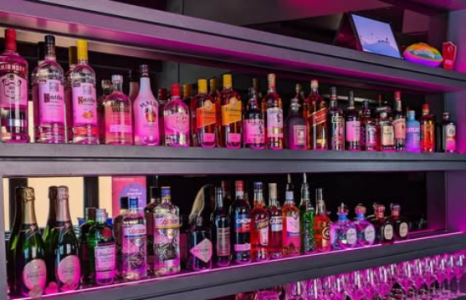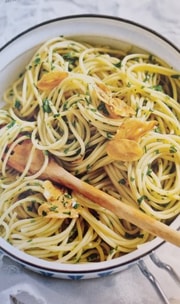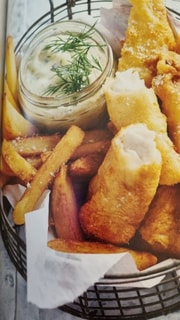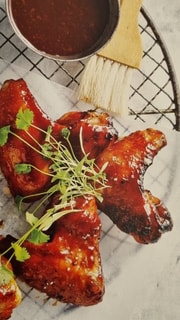‘We couldn’t hold on any longer’: the shocking closure of Australia’s first women’s sports bar
By
Maan
- Replies 44
The closure of a highly anticipated venue has sent shockwaves through the Australian hospitality scene.
What started as a groundbreaking concept quickly turned into an unexpected setback for the industry.
The circumstances surrounding this decision have sparked conversations about the challenges small businesses face in today’s economy.
The Ladies League – Australia's first women’s sports bar – has closed its doors just a few months after its highly anticipated debut.
Located on Sydney’s bustling Oxford Street, the venue opened in August, but announced its closure on New Year’s Day.

In a heartfelt social media post, the team wrote, ‘As a women’s sports bar we excelled.’
They also proudly reflected on the great turnouts for events like Matildas and Sydney FC games.
However, they acknowledged that outside of live sports, the challenges of the current economic climate proved too difficult to overcome.
‘Unfortunately it is outside of live games that we felt the struggle as much as many other hospitality venues in this economic climate,’ they explained.
‘We knew we had a fantastic product on offer but unfortunately as a small business, we couldn’t hold on any longer to try any new approaches.’
Founder Rose Valente, 34, expressed hope that the closure wouldn’t discourage others from supporting or starting similar ventures.
She had drained her savings and even sold an investment property to finance the bar, as banks had been reluctant to offer a loan due to its perceived risk.
In an effort to raise funds, Valente garnered support from her loyal followers.
Many patrons purchased foundation memberships, which included having their names displayed on the upstairs wall, and sponsored various sections of the bar.
Among the supporters was Matildas and Melbourne Victory midfielder Alex Chidiac, who helped by sponsoring a bench.
An Instagram follower also donated a signed Australian women’s cricket shirt to the cause.
The vision for The Ladies League was to create a space for women’s sports fans to gather, showing live matches and replays during quieter hours.
While the bar catered primarily to female athletes, men were welcome, and Valente said she was open to showing men’s sports if that was the preference of her patrons.
The 80-seat venue featured six TVs and a large screen, with a downstairs bar and an upstairs lounge for those looking for a livelier atmosphere.
Valente’s idea for the bar stemmed from the gap in Australia’s sports coverage, where women’s events only account for 12 to 15 per cent of screen time.
Inspired by similar successes abroad, such as The Sports Bra in Portland, which earned $1 million in its first year, The Ladies League attracted considerable excitement from fans.
Many were even planning trips from other states to experience it.
However, despite the excitement, the bar never quite reached the sustained momentum it needed.
The location, on Sydney's iconic Oxford Street, led some to speculate that it might eventually evolve into a full LGBTQ+ bar, though that didn’t come to pass.
In the wake of the closure, The Ladies League’s message remained positive.
‘We hope this doesn’t discourage anyone from opening a similar concept in the future, the support we felt from the community was amazing,’ they wrote.
They also thanked everyone who visited or supported them.
As is the case with many hospitality venues across Australia, small businesses are particularly vulnerable right now.
Staff shortages, high costs, and reduced consumer spending have made survival increasingly difficult.
A May report from CreditorWatch warned that one in 13 smaller hospitality businesses could fail, with conditions likely to worsen before they improve.
Despite the challenges, Valente’s venture left an impact on the conversation around elevating women’s sports, and the support from fans remains a silver lining.

Is there a future for these kinds of venues in Australia? Share your thoughts in the comments below.
What started as a groundbreaking concept quickly turned into an unexpected setback for the industry.
The circumstances surrounding this decision have sparked conversations about the challenges small businesses face in today’s economy.
The Ladies League – Australia's first women’s sports bar – has closed its doors just a few months after its highly anticipated debut.
Located on Sydney’s bustling Oxford Street, the venue opened in August, but announced its closure on New Year’s Day.

Sydney’s pioneering women’s sports bar shuts down unexpectedly. Image source: @theladiesleague on Instagram
In a heartfelt social media post, the team wrote, ‘As a women’s sports bar we excelled.’
They also proudly reflected on the great turnouts for events like Matildas and Sydney FC games.
However, they acknowledged that outside of live sports, the challenges of the current economic climate proved too difficult to overcome.
‘Unfortunately it is outside of live games that we felt the struggle as much as many other hospitality venues in this economic climate,’ they explained.
‘We knew we had a fantastic product on offer but unfortunately as a small business, we couldn’t hold on any longer to try any new approaches.’
Founder Rose Valente, 34, expressed hope that the closure wouldn’t discourage others from supporting or starting similar ventures.
She had drained her savings and even sold an investment property to finance the bar, as banks had been reluctant to offer a loan due to its perceived risk.
In an effort to raise funds, Valente garnered support from her loyal followers.
Many patrons purchased foundation memberships, which included having their names displayed on the upstairs wall, and sponsored various sections of the bar.
Among the supporters was Matildas and Melbourne Victory midfielder Alex Chidiac, who helped by sponsoring a bench.
An Instagram follower also donated a signed Australian women’s cricket shirt to the cause.
The vision for The Ladies League was to create a space for women’s sports fans to gather, showing live matches and replays during quieter hours.
While the bar catered primarily to female athletes, men were welcome, and Valente said she was open to showing men’s sports if that was the preference of her patrons.
The 80-seat venue featured six TVs and a large screen, with a downstairs bar and an upstairs lounge for those looking for a livelier atmosphere.
Valente’s idea for the bar stemmed from the gap in Australia’s sports coverage, where women’s events only account for 12 to 15 per cent of screen time.
Inspired by similar successes abroad, such as The Sports Bra in Portland, which earned $1 million in its first year, The Ladies League attracted considerable excitement from fans.
Many were even planning trips from other states to experience it.
However, despite the excitement, the bar never quite reached the sustained momentum it needed.
The location, on Sydney's iconic Oxford Street, led some to speculate that it might eventually evolve into a full LGBTQ+ bar, though that didn’t come to pass.
In the wake of the closure, The Ladies League’s message remained positive.
‘We hope this doesn’t discourage anyone from opening a similar concept in the future, the support we felt from the community was amazing,’ they wrote.
They also thanked everyone who visited or supported them.
As is the case with many hospitality venues across Australia, small businesses are particularly vulnerable right now.
Staff shortages, high costs, and reduced consumer spending have made survival increasingly difficult.
A May report from CreditorWatch warned that one in 13 smaller hospitality businesses could fail, with conditions likely to worsen before they improve.
Despite the challenges, Valente’s venture left an impact on the conversation around elevating women’s sports, and the support from fans remains a silver lining.
Key Takeaways
- The first women’s sports bar in Australia, located in Sydney, closed just months after opening.
- The bar had successful turnouts for major women’s sports events but struggled outside of live games.
- Founder Rose Valente invested heavily, using personal savings and crowdfunding from supporters.
- Despite the closure, Valente hopes others will continue the push for more women’s sports-focused spaces.
Is there a future for these kinds of venues in Australia? Share your thoughts in the comments below.







